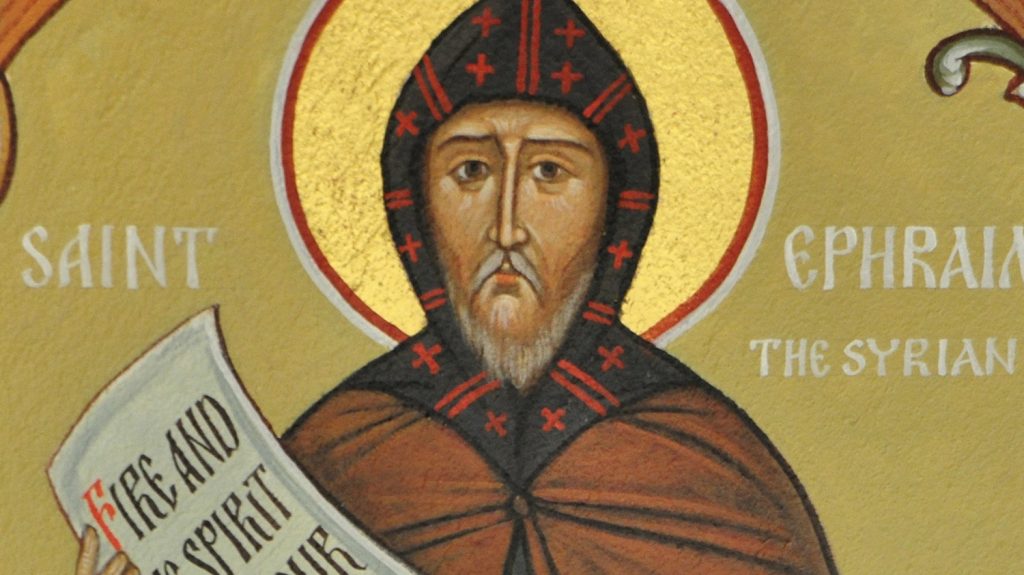Today is the feast of St Ephrem the Syrian (above), the 4th century theologian who wrote his most important works in poetry. He died today in the year 373. Where other theologians did their work by using dogmas and definitions, Ephrem explored the big theological themes using symbols and paradoxes, writing in Syrian, a dialect of the language spoken by Jesus. His writings have a natural connection with Asian and African Christianity, making Ephrem a bridge between east and west.
This is the month that bears utterly
all joys: for slaves – liberation,
for the free – pride, for doors – garlanding,
for bodies – dainties. And purple garments
it showers in its love as if for a king.
Praise to You, fair Child of the Virgin!
St Ephrem, Hymn 5 on the Nativity, translated by Kathleen McVey
William Carey, the Baptist missionary pioneer, died today in Serampore, West Bengal, in 1834. He translated the Bible into six of the languages of India, and also translated the Ramayana, the Sanskrit epic of ancient India, into English. By his orders, his tombstone gives only his name and dates, and the bare lines: ‘A wretched, poor and helpless worm, On thy kind arms I fall.’
The first Book of Common Prayer was enforced in all dioceses of the Church of England today in 1549, a Whitsunday. During Henry VIII’s reign, the English Church had continued to worship in Latin, but now, two years after Henry’s death, under the new King Edward VI, this new book presented a revised liturgy in English, and the old Latin worship was made illegal. The new book introduced some seismic changes: parishioners no longer had to confess their sins in private to a priest before they could receive communion; and it did away with all the prayers to the saints. The publication of the Prayer Book caused violent rebellion in Devon and Cornwall and was replaced by a revised edition in 1552
‘And where heretofore, there hath been great diversitie in saying and synging in churches within this realme: some folowyng Salsbury use, some Herford use, same the use of Bangor, some of Yorke, and some of Lincolne: Now from hencefurth, all the whole realme shall have but one use.’ Preface to the Book of Common Prayer, 1549
It is the feast of St Columba, the 6th century Celtic missionary and mystic. Originally from Ireland, he crossed the sea to Scotland with 12 companions, all of them in a wicker coracle, where he founded an abbey on the remote island of Iona. He wrote hymns, trained missionary monks, planted churches, wrote to kings, and allegedly banished the Loch Ness Monster. He is one of the three patron saints of Ireland, where he is known as Colmcille, and died today in the year 597.
The Roman Emperor Nero, who persecuted the early Christians of Rome, committed suicide on this day in the year 68. Convinced that he was soon to be publicly beaten to death, he persuaded his secretary to help him kill himself minutes before he was arrested.
The Parisian printer Simon de Colines was fined today in 1523 for printing a book of the four Gospels, including commentary, that had not been approved. Colines was an important early book printer and contributed many items of ‘furniture’ which are now commonplace in books: chapter headings, tables of contents, title pages and page numbers.
Image: bobosh_t
